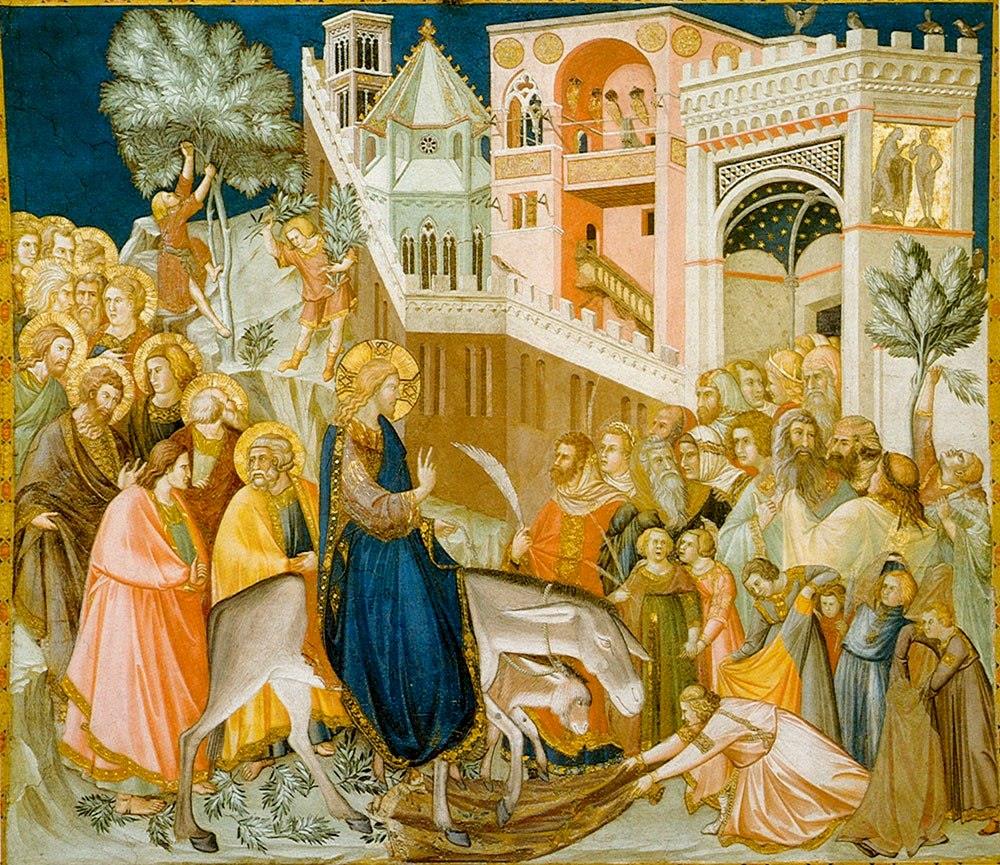
Easter in Macedonia
For a lot of you, Easter is probably focused on egg hunts and the Easter bunny, but for me, Easter is a holiday for celebrating the resurrection of Jesus Christ. So, in honor of Jesus, we crack hard-boiled eggs off of each other and then eat them. (The egg itself became a symbol of the Resurrection. Just as Jesus rose from the tomb, the egg symbolizes new life emerging from the eggshell).
 In my country, Easter always is on a Sunday, whether it’s in April or early May. The whole Easter holiday starts 7 weeks before Easter Sunday, on which day people celebrate “Prochka” (Forgiveness Day) when younger members of the family visit their elderly relatives to ask them for their forgiveness in case the younger members have treated them poorly throughout the whole year.
In my country, Easter always is on a Sunday, whether it’s in April or early May. The whole Easter holiday starts 7 weeks before Easter Sunday, on which day people celebrate “Prochka” (Forgiveness Day) when younger members of the family visit their elderly relatives to ask them for their forgiveness in case the younger members have treated them poorly throughout the whole year.
The following day is the first day of fasting and the first and the last week are the most important weeks for those who plan to fast during the holidays. A week before Easter on the night between Friday and Saturday young people with instruments gather together and go from house to house singing traditional songs and serenades under the windows of beloved ones and usually bachelors/bachelorettes, celebrating “Lazar’s Saturday”.
The Sunday after “Lazar’s Saturday” is known as “Cvetnici” (Palm Sunday, also called Passion Sunday, in the Christian tradition, the first day of Holy Week and the Sunday before Easter, commemorating the day when Jesus Christ’s disciples threw flowers on the ground to make the path for his triumphal entry into Jerusalem).
 The holy week has 4 important days. Maundy Thursday-Holy Thursday commemorates the Last Supper of Jesus Christ with his Apostles. On this day before sunrise, the eldest lady in the family wakes up early and dyes the first 3 eggs for good luck. Then she rubs one of the dyed eggs on her children’s faces while they are still warm, and while the children are still asleep, saying the chant “Crveno, belo, zdravo, veselo” (May you be red, white, healthy, and jolly throughout the whole year). How pleasant is that feeling, only a child can say (so tender, so soft, so sweet and holy).
The holy week has 4 important days. Maundy Thursday-Holy Thursday commemorates the Last Supper of Jesus Christ with his Apostles. On this day before sunrise, the eldest lady in the family wakes up early and dyes the first 3 eggs for good luck. Then she rubs one of the dyed eggs on her children’s faces while they are still warm, and while the children are still asleep, saying the chant “Crveno, belo, zdravo, veselo” (May you be red, white, healthy, and jolly throughout the whole year). How pleasant is that feeling, only a child can say (so tender, so soft, so sweet and holy).
 Good Friday commemorates Jesus Christ’s crucifixion and death. Оn this day ladies and kids visit the 3 churches in Tetovo, they light up candles, leave dyed eggs on the “grave” of Jesus Christ, they go around it three times for good luck and leave some coins on the holy icons and frescoes.
Good Friday commemorates Jesus Christ’s crucifixion and death. Оn this day ladies and kids visit the 3 churches in Tetovo, they light up candles, leave dyed eggs on the “grave” of Jesus Christ, they go around it three times for good luck and leave some coins on the holy icons and frescoes.
This is a very strict fasting day, Believers should only drink water, they should not do any work and they should pray all day to save the soul of Jesus Christ. Holy Saturday, also known as Easter Eve or Easter Vigil marks the day that Jesus’ body lay in the tomb and the Harrowing of Hell (the triumphant descent of Christ to hell and bringing salvation to all the souls held captive there since the beginning of the world).
On Holy Saturday night believers go to church and stay there past midnight listening to the liturgy celebrating the official Resurrection of Jesus. There, after midnight they crack the first red eggs thus symbolising Jesus Christ’s resurrection from the dead. The person who will crack all the other eggs is believed to be the luckiest and jolliest person in the year to come. On Easter day the ladies stay at home waiting for guests to come, while the kids and the men go from house to house greeting each other with “Christ has risen”, and its response “He is risen indeed”. Children enjoy Easter because they crack eggs and sometimes when they go from door to door they get money.
